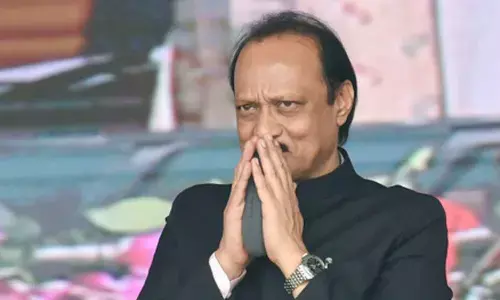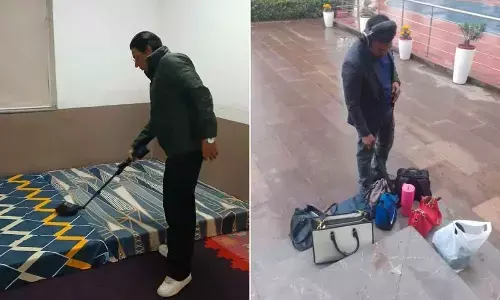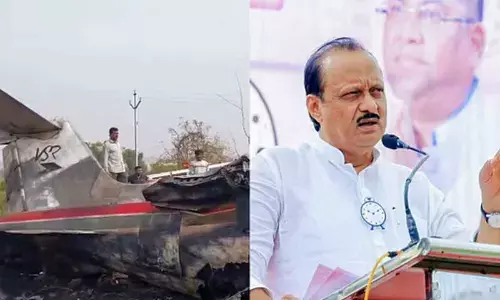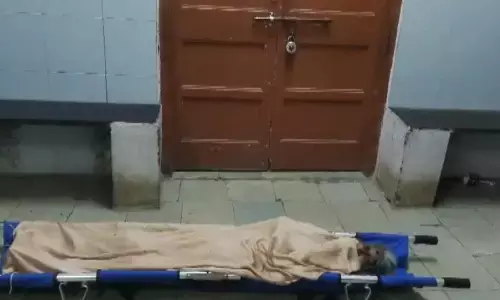IOC says no ideal solution for Tokyo Olympics as athletes voice virus concerns
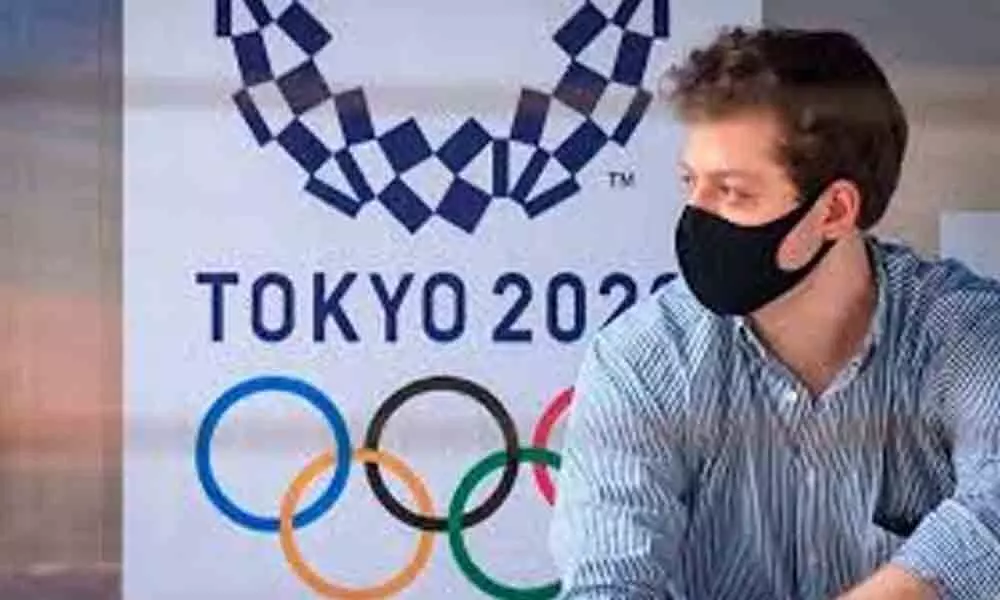
Lausanne: Olympic chiefs acknowledged Wednesday there was no "ideal" solution to staging the Tokyo Olympics amid a backlash from athletes as the deadly coronavirus pandemic swept the globe.
"This is an exceptional situation which requires exceptional solutions," an International Olympic Committee spokesperson said after criticism from top athletes that they were being forced to take health risks should the July 24-August 9 Games go ahead as scheduled during the COVID-19 outbreak.
"The IOC is committed to finding a solution with the least negative impact for the athletes, while protecting the integrity of the competition and the athletes' health. "No solution will be ideal in this situation, and this is why we are counting on the responsibility and solidarity of the athletes." Olympic pole vault champion Katerina Stefanidi and British heptathlete Katarina Johnson-Thompson had earlier both voiced concerns after the IOC said it was "fully committed" to running the Games as scheduled from July 24.
Stefanidi, one of Greece's most prominent athletes, was scheduled to hand the ceremonial flame to Japanese officials before the Greek leg of the torch relay was scrapped over COVID-19, which has 194,000 cases with 7,873 deaths, across 150 countries and territories as of 0900 GMT Wednesday. "The IOC wants us to keep risking our health, our family's health and public health to train every day?" she tweeted. "You are putting us in danger right now, today, not in 4 months." –
Zero risk consideration
On Tuesday, minutes before the IOC statement, the Euro 2020 football tournament was delayed for a year, bowing to the crisis that has paralysed Europe and drastically curtailed international travel. Olympic qualifying tournaments are among the swathe of sports events that have been cancelled or postponed, with only 57 percent of athletes booking their places so far. "It's unbelievable," said Stefanidi. "What about team sports that have to train together? What about swimming? What about gymnastics that they touch the same objects? "There is zero consideration of the risk they are putting us in right now." Johnson-Thompson, the world heptathlon champion, criticised the IOC for telling athletes to train "as best they can", saying it was at odds with stringent government health measures. "I feel under pressure to train and keep the same routine which is impossible," she wrote on Twitter. "It's difficult (to) approach the season when everything has changed in the lead-up apart from the ultimate deadline," added the Briton.
Bigger than the Olympics
Doubts are increasingly being expressed about holding the Olympics on time, after the outbreak that first exploded in China spread to Asia and then worldwide. On Wednesday an Olympic gymnastics qualifier in Tokyo, doubling as a test event, became the latest competition to be cancelled. A day earlier, the deputy head of Japan's Olympic committee said he had tested positive for coronavirus. But the IOC insisted "there is no need for any drastic decisions at this stage", adding that "any speculation at this moment would be counter-productive".
Hayley Wickenheiser, a Canadian IOC member with four ice hockey gold medals, warned "this crisis is bigger than even the Olympics". "From an athlete perspective, I can only imagine and try to empathise with the anxiety and heartbreak athletes are feeling right now," she said in a statement. "The uncertainty of not knowing where you're going to train tomorrow as facilities close and qualification events are cancelled all over the world would be terrible if you've been training your whole life for this." Wickenheiser added: "I think the IOC insisting this will move ahead, with such conviction, is insensitive and irresponsible given the state of humanity."
France's 110m hurdler Pascal Martinot-Lagarde, European champion and world bronze medallist who finished fourth at the Rio Games in 2016, told AFP a postponement was the only fair solution. "We're not all in the same boat, there are countries which are less affected than others. In some countries athletes can train normally while we can't even access our training ground," he said. "We are not on an equal footing when it comes to preparation. The Games should be postponed until the end of 2020, not next year."









